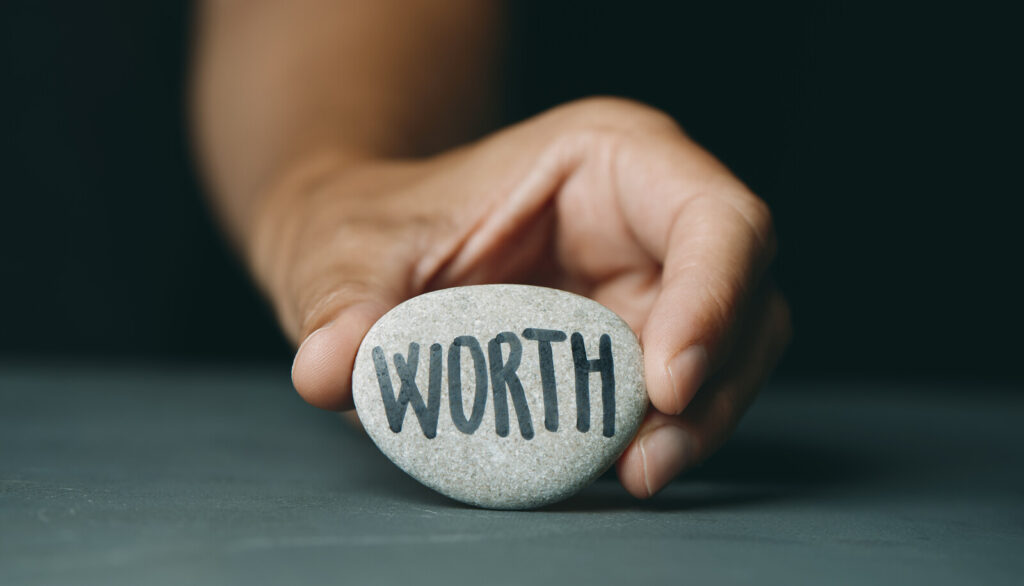
When
I started speaking professionally many years ago, people would come up
after my presentation and say, “Dr. Lazaris, you did a great job, I
enjoyed what you had to share and it will help me so much” and I’d say, “Oh, it was
nothing.”
Nothing?
I had, in fact, spent hours and hours preparing. It wasn’t really ‘nothing’ as I had worked hard to do well. Looking back, I should have simply said, “Thank you, I really appreciate that, it means a lot to me.”
I wonder if also you tend to place others above yourself, if you wonder how someone could possibly like or even love you? Even when people do nice things for you, or compliment you, is it difficult to accept that? Is it difficult to simply say, “Thanks, yes, I am really good at that.”
The key question here is, “Am I worth it?”
By
anxiously wanting to be accepted by others, we attempt to get others to
like us before we even learn to like our self. The Bible says, “Love
your neighbor as yourself.” Until you can
love yourself, until you can have a good self-image and a basic
foundation of feeling good about yourself, you cannot truly even love
someone else, let alone accept their compliments.
The challenge with anyone who struggles with anxiety is that you so often reverse that, and make your goal to be liked by others, instead of liking yourself.
Author Pia Melody has a really great definition of self-esteem. She says,
“Healthy self-esteem is the internal experience of one’s own preciousness. It comes from inside a person and moves outward into relationships. Healthy people know they are valuable and precious even when they make a mistake, even when they are confronted by an angry person, are cheated or lied to, or rejected by a friend, a child, a lover, or a boss. Their sense of worth can be felt even when their hair has been cut too short by a barber and even if they are overweight, even if they lose a tennis game or realize that they have been insulted or gossiped about. Healthy individuals may feel many emotions such as guilt, fear, anger and pain in these circumstances, but their sense of self-esteem remains intact.”
She is saying that people with low self- esteem have their identity and their worth tied to things outside of themselves, whether it is what someone thinks of you, if you gave a good presentation or interview, if your art or music is good enough, or thinking that someone is talking negatively about you.
We so often base our self-worth on something external.
If you depend upon some standard outside of yourself for your self-worth, if you depend on if I like how you speak, or how you look or present yourself, you are in big trouble, because I may think you look fine, but if the next person doesn’t, what do you do?
As it becomes clearer how closely related your struggles with anxiety are to issues of self-esteem, I would like you to reflect on the following questions: “Am I a lovable person?” “Do I believe people when they complement me?” “Do I call myself negative names?” “Do I say, Boy that was stupid, I can’t believe I did that!”
Do you mentally and emotionally beat yourself up? Do you see your mistakes as failures, when the reality is that you are not going to get through life without making mistakes, without sometimes blowing it?
Are you self-conscious? Do you experience self-doubts? Are you afraid to take risks for fear of failing? Is it difficult to set boundaries for yourself, to set limits, to say “No”? Are you devastated when you feel criticized?
These are all symptoms of low self-esteem.
It is critical, then, to learn
to feel good about being able to get out there in life, in business and in your creativity, to believe you have
value and deserve to experience great things.
If you don’t think that you are enough and you have the basic belief and feeling that the world is dangerous and you are not capable of dealing with it, then you will feel like an imposter, your world will shrink, and you will start to avoid the things that feel scary.
Real change begins with an awareness that the foundation of your anxiety and lack of risk-taking in life is low self-esteem.
How, then, can you begin to turn this around, to begin to accept your value and worth? In my next article, I will share 3 powerful principles and steps that you can use to take this awareness and apply it to learning to accept and love yourself.
In the meantime be aware of how negatively you talk to yourself and say, “It is time for me to quit feeling like an imposter and time to act like I truly matter and have worth!”
To receive your Free copy of the Fearless Performer Checklist, Click here.

Please note: I reserve the right to delete comments that are offensive or off-topic.